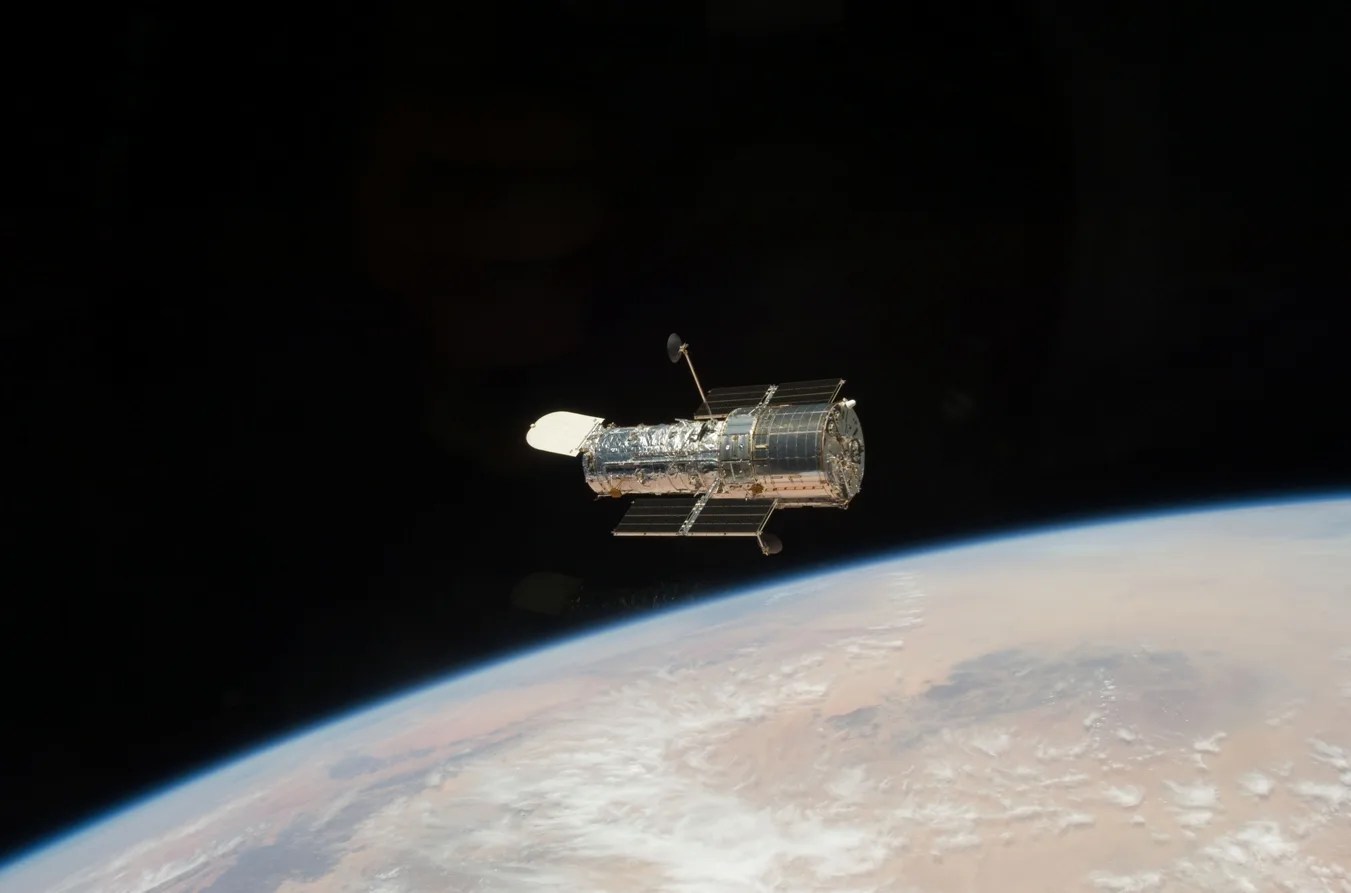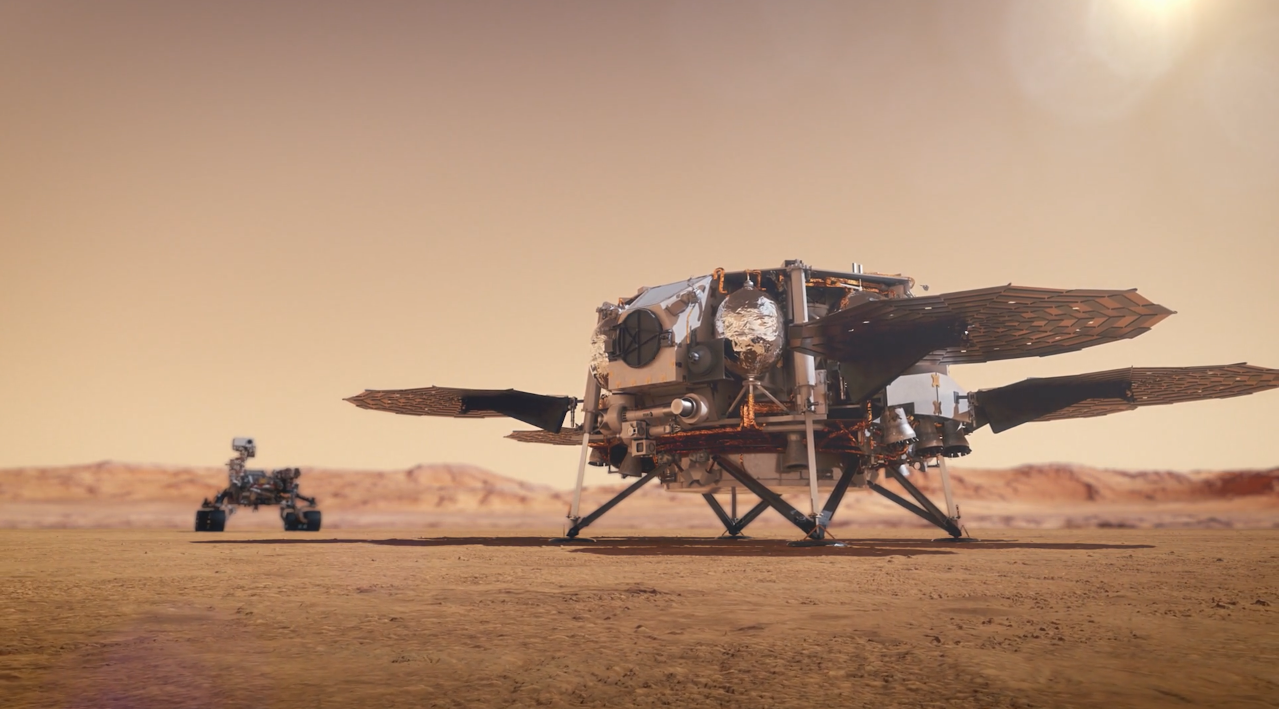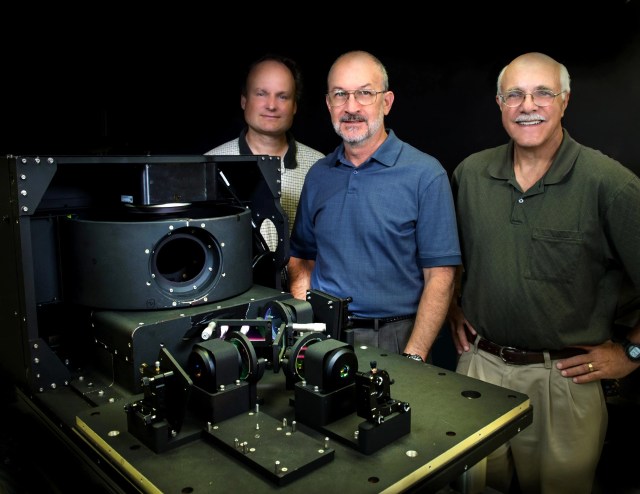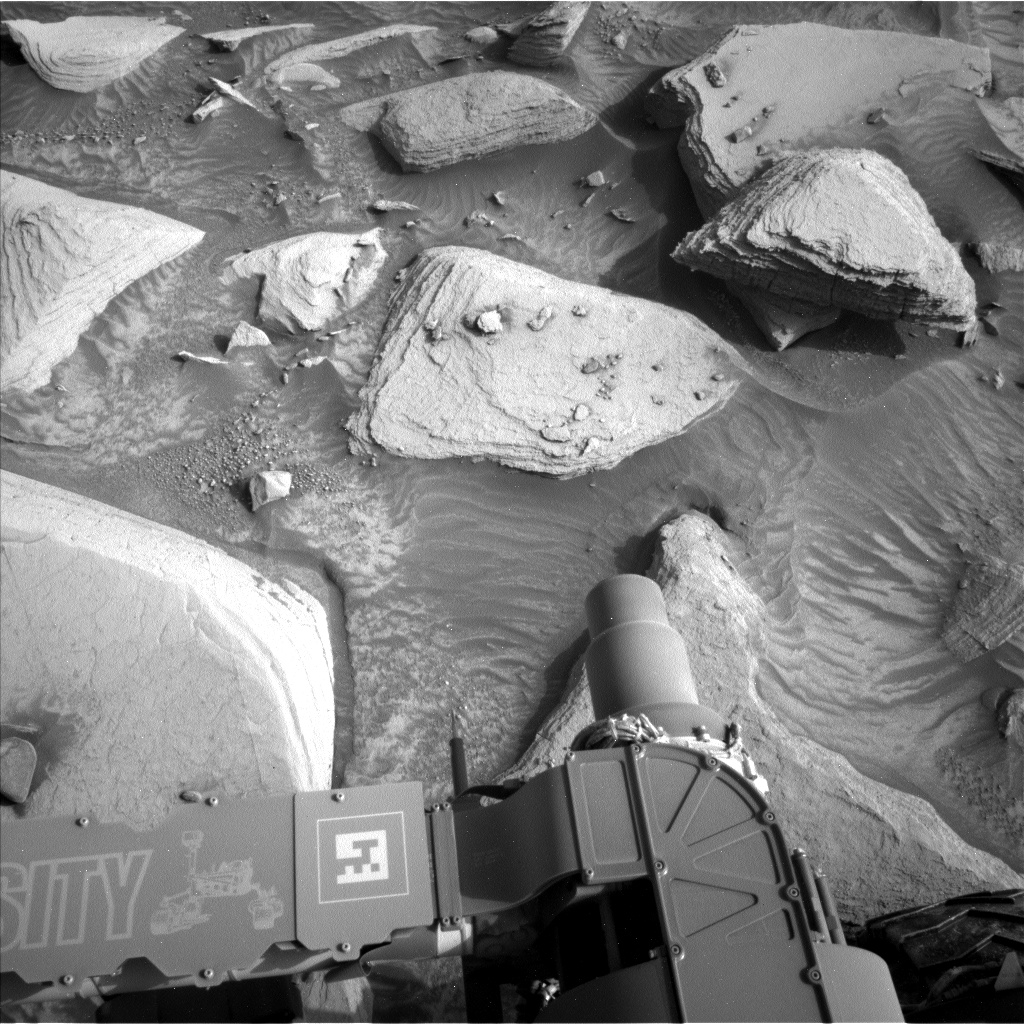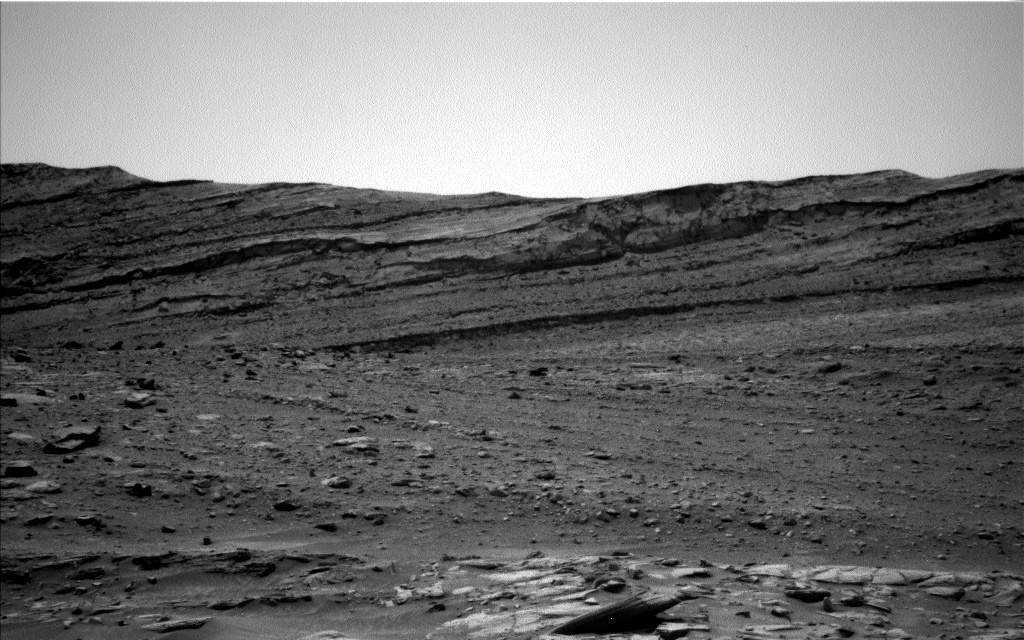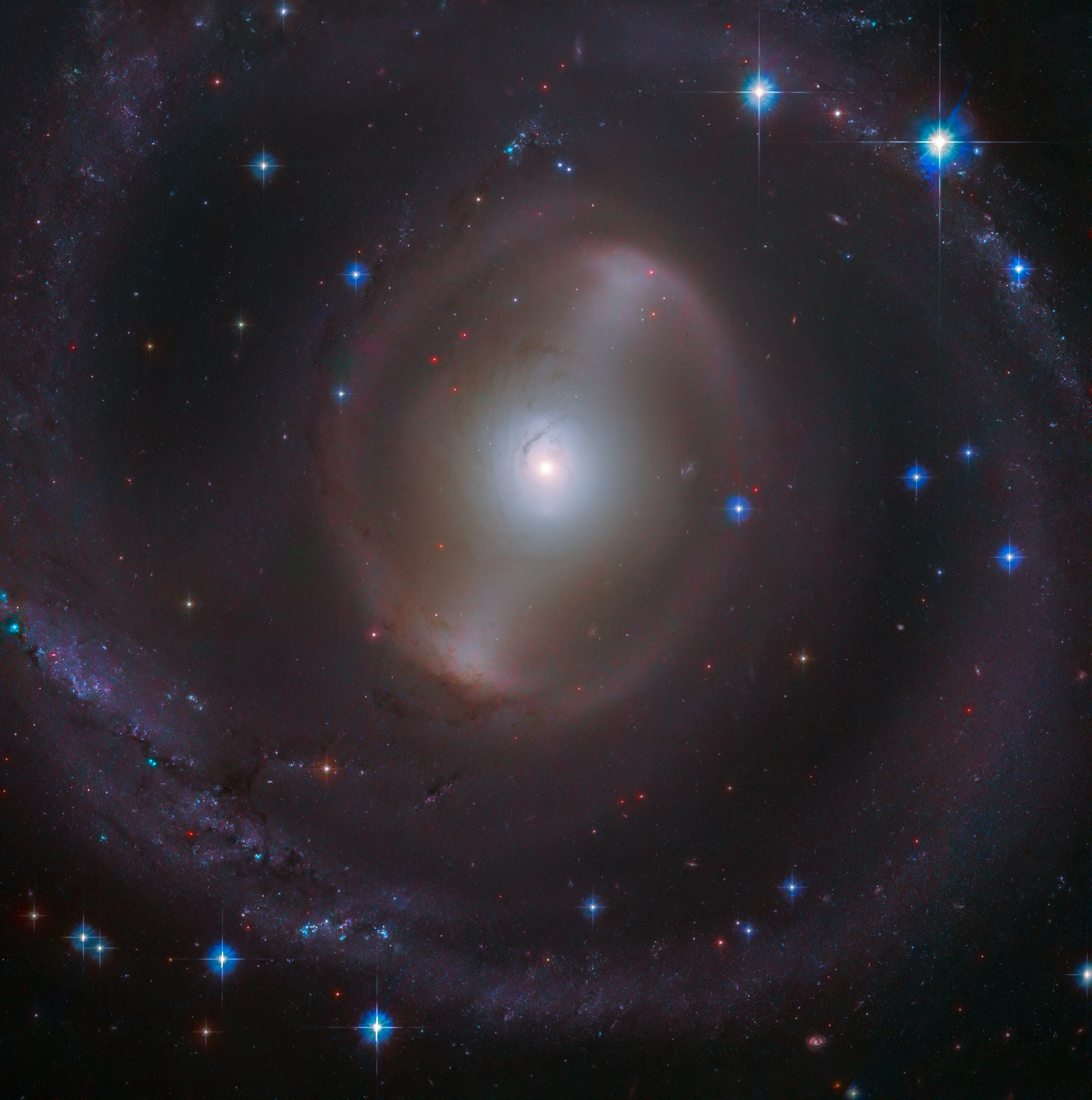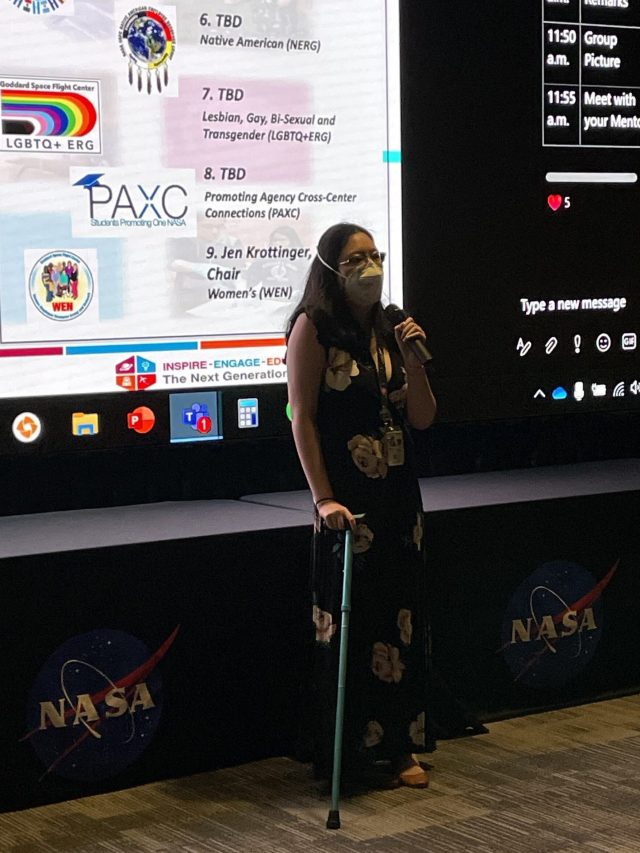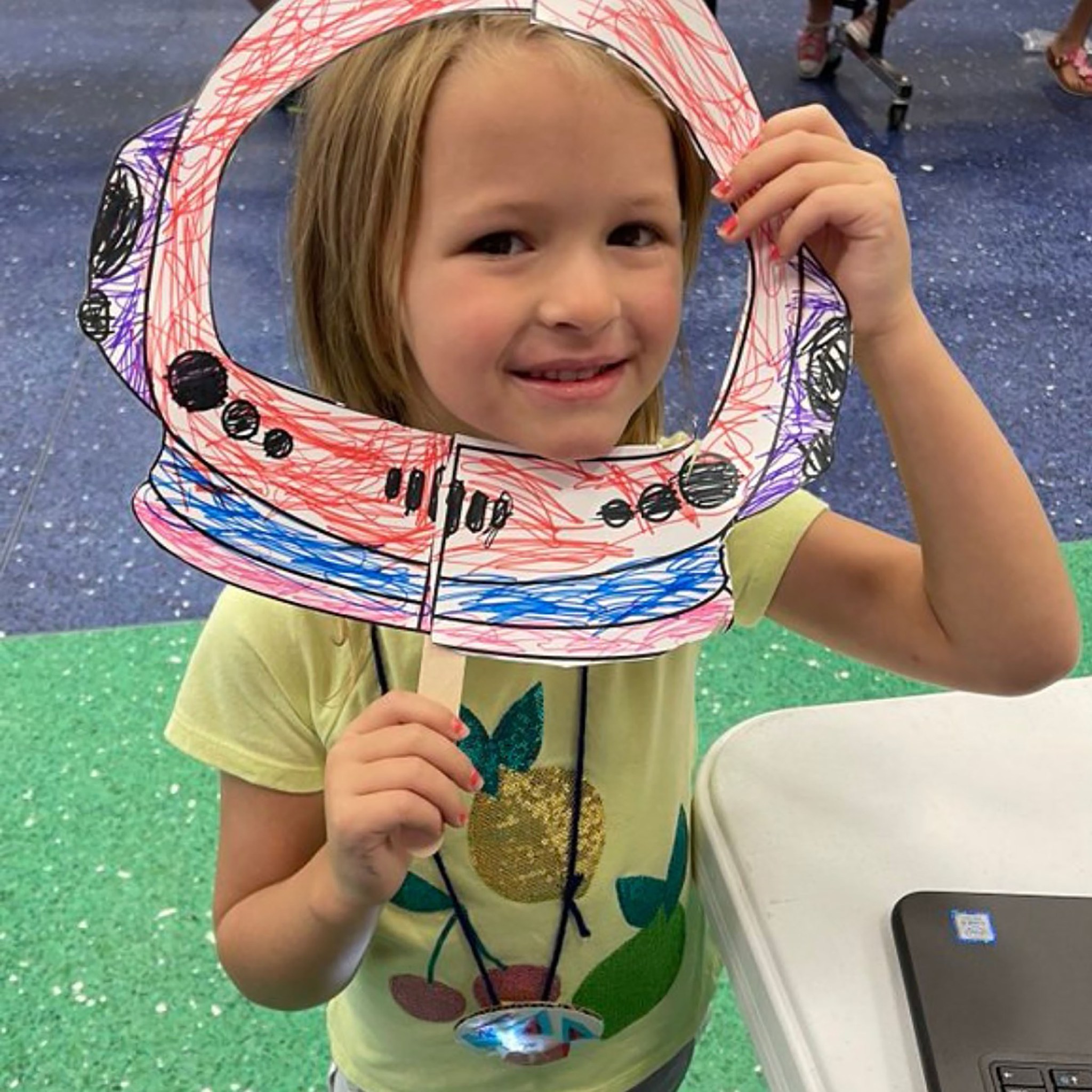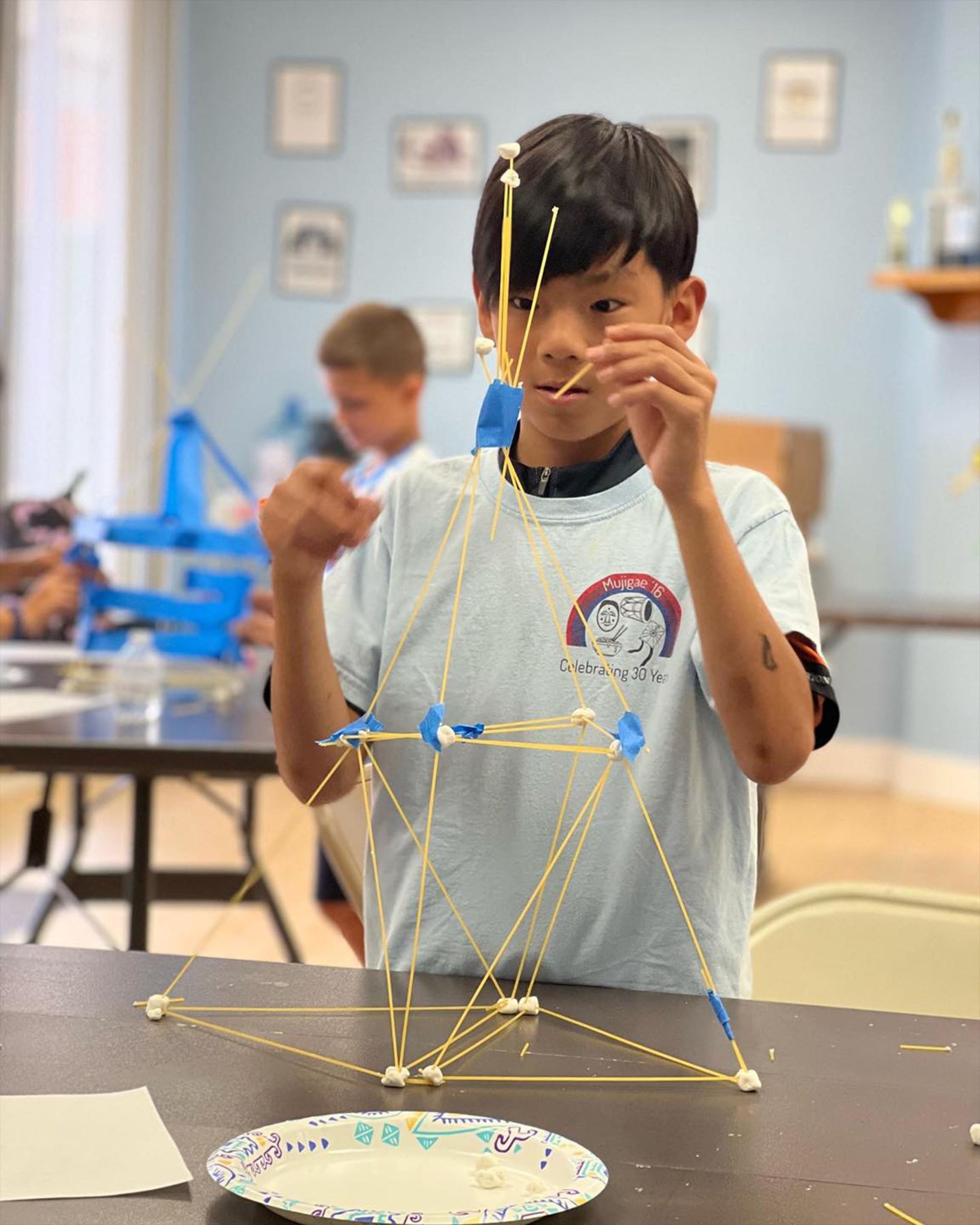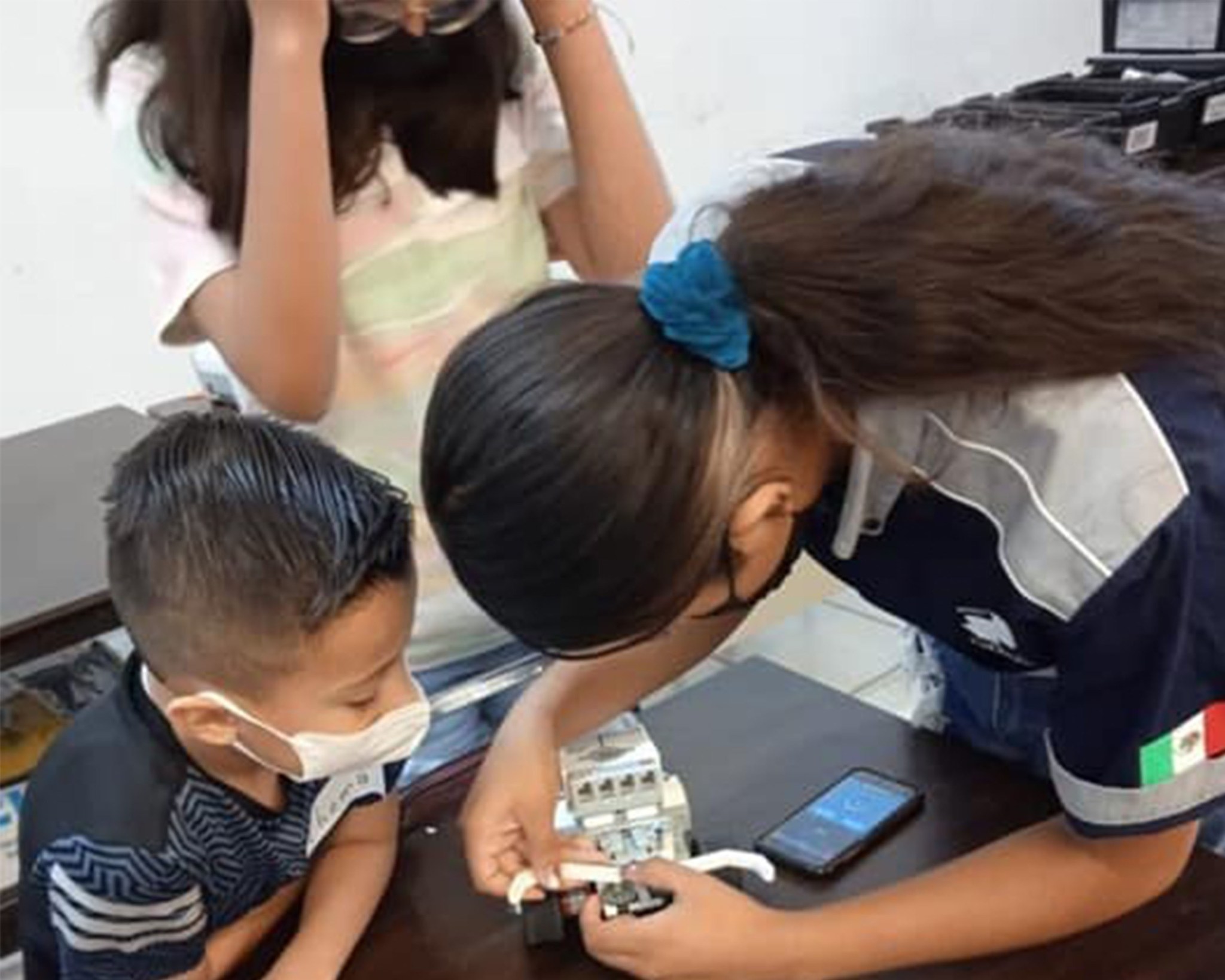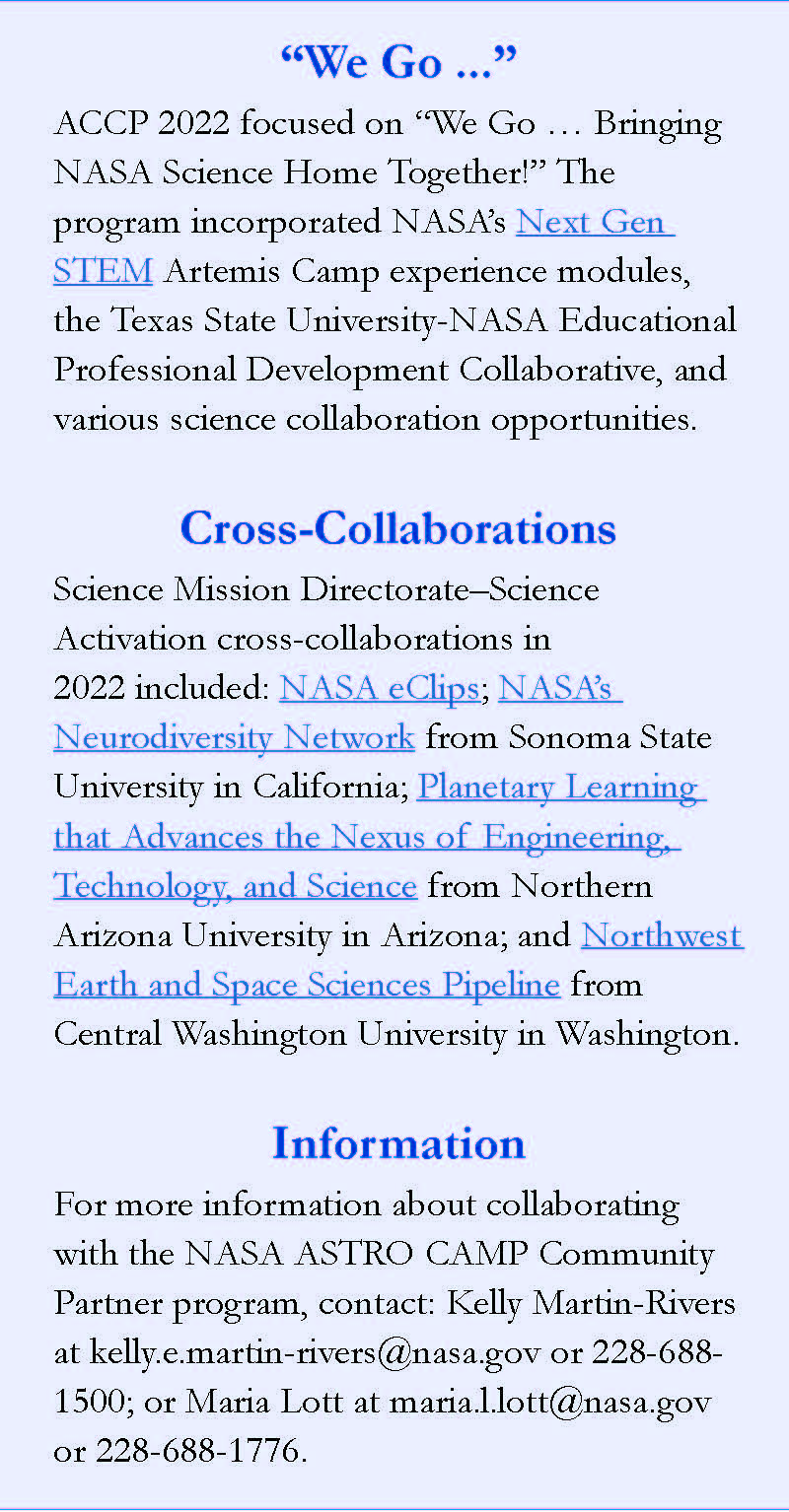What do students of varying ages and ethnicities from schools, museums and libraries in Mississippi, Ecuador, Louisiana, Spain, Hawaii, and Mexico have in common? Thanks to an innovative collaboration initiative, they all have experienced NASA’s ASTRO CAMP® and STEM activities.
They also have helped NASA ASTRO CAMP® Community Partners (ACCP) program set milestone marks in fiscal year 2022, as it partnered with more than 200 community sites to help inspire youth, families, and educators with STEM (science, technology, engineering, and mathematics) activities and experiences.
As NASA seeks to explore the secrets of the universe for the benefit of all and inspire the world through discovery, ACCP activities offer real-world opportunities for students to join in, and contribute to, agency science missions and to enhance scientific understanding while inspiring lifelong learners and explorers.
“Students at schools and children attending community programs at 194 locations nationally encountered NASA science with ACCP’s activities this past year,” said Kelly Martin-Rivers, principal investigator for NASA’s ACCP. “The reach of the program has expanded internationally. Seven sites outside the United States bring the total to 201 ACCP programs for 2022, setting new records for NASA’s ACCP growth.”
ASTRO CAMP® began as a single one-week camp at NASA’s Stennis Space Center near Bay St. Louis, Mississippi, in the 1990s and has developed into several adaptable models for schools, museums, universities, libraries, and youth service organizations, enabling a worldwide expansion. The ACCP program is an infrastructure project within NASA’s Science Mission Directorate–Science Activation program support. The program grows with each passing year, reaching far, wide, and across both geographical and cultural borders.
A summary of the year’s efforts shows that ACCP spanned 29 states and the countries of Ecuador, India, Mexico, Spain, and Ukraine. A total of 35,033 participants were directly involved in ACCP programs through registered student activities. An additional 43,789 participants served in unique STEM ACCP special events, setting the program record for its 30-year history.
The ACCP program highlights current and past NASA missions while using hands-on activities to expand STEM interests in astrophysics, Earth science, heliophysics, and planetary science. The unique methodology teaches students to work collaboratively to complete missions and provides trained community educators to implement the themed NASA modules developed by the ACCP team seated at Stennis Space Center.
ASTRO CAMP® sites are not limited to school settings, although many have embraced the initiative. For instance, Pukalani Elementary School in Makawao, Hawaii, a first-time collaborator, became the 200th ACCP program site this past year and is using the NASA science curriculum throughout the 2022-23 term.
In 2022, ACCP also served 2,605 Hispanic K-12 participants. “The ACCP team seeks to put NASA’s resources into traditionally underserved and underrepresented communities,” said Martin-Rivers. “ACCP community site reports show that the girls’ attendance was equal to the boys’ and Hispanic ethnicity was the highest population reported by our partners this year.”
The Ecuador Astro Camp site, Testlab Fun Science located in Santa Elena, is a second-year partner that has experienced growing interest and an increase in participants. It has acquired 24 acres of natural forest in Ecuador to create a scientific experience inspired by NASA.
“We are loving to share NASA science with Ecuadorians from all ages, and we are now thinking on more ways to do it, …” camp facilitator Guillermo Gilbert said. “We want to take the NASA experience in Latin America to a new level.”
Meanwhile, Dr. Jafar Al-Sharab, a three-year ACCP facilitator with Northwestern State University in Natchitoches, Louisiana, stated, “We strongly believe that the (NASA) ASTRO CAMP team inspired youth, families, and educators to explore the realms of space and the STEM fields of science, technology, engineering, and mathematics. It is very evident, based on the student participation, and students who return to the camp every summer, that we are on the right track to inspire the Artemis generation and to prepare a future STEM workforce.”
For more on the ASTRO CAMP Community Partner Program, visit:
ASTRO CAMP Contact Information (PDF)
C. Lacy Thompson
Stennis Space Center, Bay St. Louis, Mississippi
228-363-5499
calvin.l.thompson@nasa.gov


